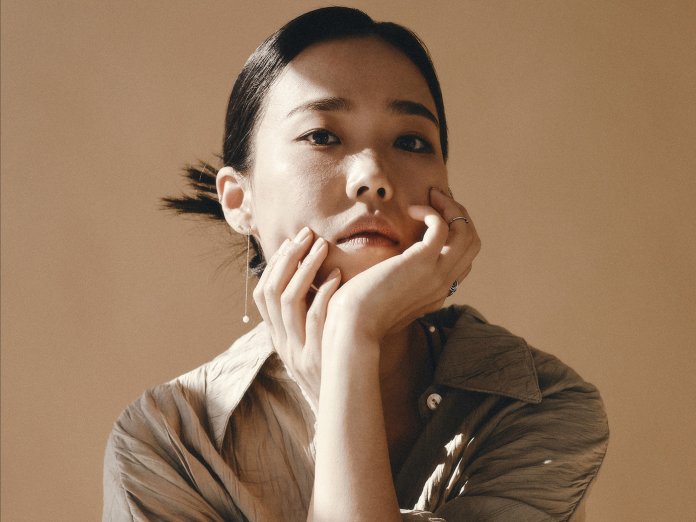Korean adventurer Park Jiha on getting new sounds from traditional instruments – and from the air itself on her latest record, The Gleam, previously in our MAY 2022 issue of Uncut, available to buy here.
For Park Jiha, a successful gig is literally all about the vibes in the room. This isn’t, in this instance, a kind of woolly shorthand for explaining the subtle relationship between performer and audience. It’s more a technical requirement for Jiha’s music – an entrancing and longform spell of melodies and long tones presented on traditional instruments like the piri (double reed flute), yanggeum (hammered dulcimer) and saenghwang (mouth organ).
“We have a lot of trouble,” Park explains through her husband and interpreter Curtis Cambou, a French DJ and label owner in Seoul. “The instruments are very hard to mic up. The sound is very weak so they need to be amplified, but you get a lot of feedback. Unless you’re playing in a room with reverb it doesn’t sound right. They were supposed to be played in small traditional Korean houses with wooden floors and ceilings.”
Park and her instruments have come a long way. A student of Korean music since she was 13, she has always been interested in extending the boundaries of tradition. After college, she formed a duo called 숨[suːm] with fellow musician Jungmin Seo, and their technical blend of traditional instruments and Park’s songs became a feature of exchange programmes and festivals.
After nine years, Park went solo, sticking with her instrumentation, but drawing inspiration from some of the expansive moods she found in post-classical composers like Nils Frahm and Ólafur Arnalds. “My direction became clearer the further on I went,” she says. Finding the most suitable environment to play and record has since been one of the more demanding features of her work. “I did one concert in an old oil tank. The reverb was something like 6.5 seconds. A real special occasion – you get the imprint of that space.”
By her second LP, 2019’s excellent Philos, in which ambient street noise becomes a feature of the recording, Park had decided to make the arrangement more formal. “I felt it would be more fun if the instruments were recorded in a certain environment, which becomes part of the vibe, the atmosphere of the space it was recorded in.” The music itself, Park says, arrives by a process of intuition, “improvising melodies, textures and details” and is “mostly just pure feelings, finding beautiful sonorities which fit together.” If she feels a track is going somewhere, she “might try and play a bit weirdly with it. I have a lot of unusual techniques. They can bring special elements to some tracks.”
An occasional guest star in Park’s work is the voice. On Philos, she imagined one piece having words, but “a floating vocal, more like an instrument”. This turned into “Easy”, a collaboration with the Lebanese artist Dima El Sayed, in which Park’s serene instrumental composition is juxtaposed with El Sayed’s polemic. The serendipity of the collaboration has encouraged more work with voice: on March 29, she plays in London with writer and performance artist Roy Claire Potter, with whom she was originally paired for a spot on Radio 3’s Late Junction in 2020. Cambou recalls the pair’s original creative meeting. “I was expecting a mess,” he laughs as he recalls trying to understand Potter’s accent, “but it was mind-blowing. Her music is delicate, but they were matching twists and transitions. It was beautiful.”
The success of the meeting was all the more gratifying, since the pair had never previously met. “They were meant to have a rehearsal, but Skype wasn’t working so they didn’t.” Sometimes technology will let you down in ways that music won’t.
Park Jiha’s The Gleam is out now on Tak:Til/Glitterbeat.



